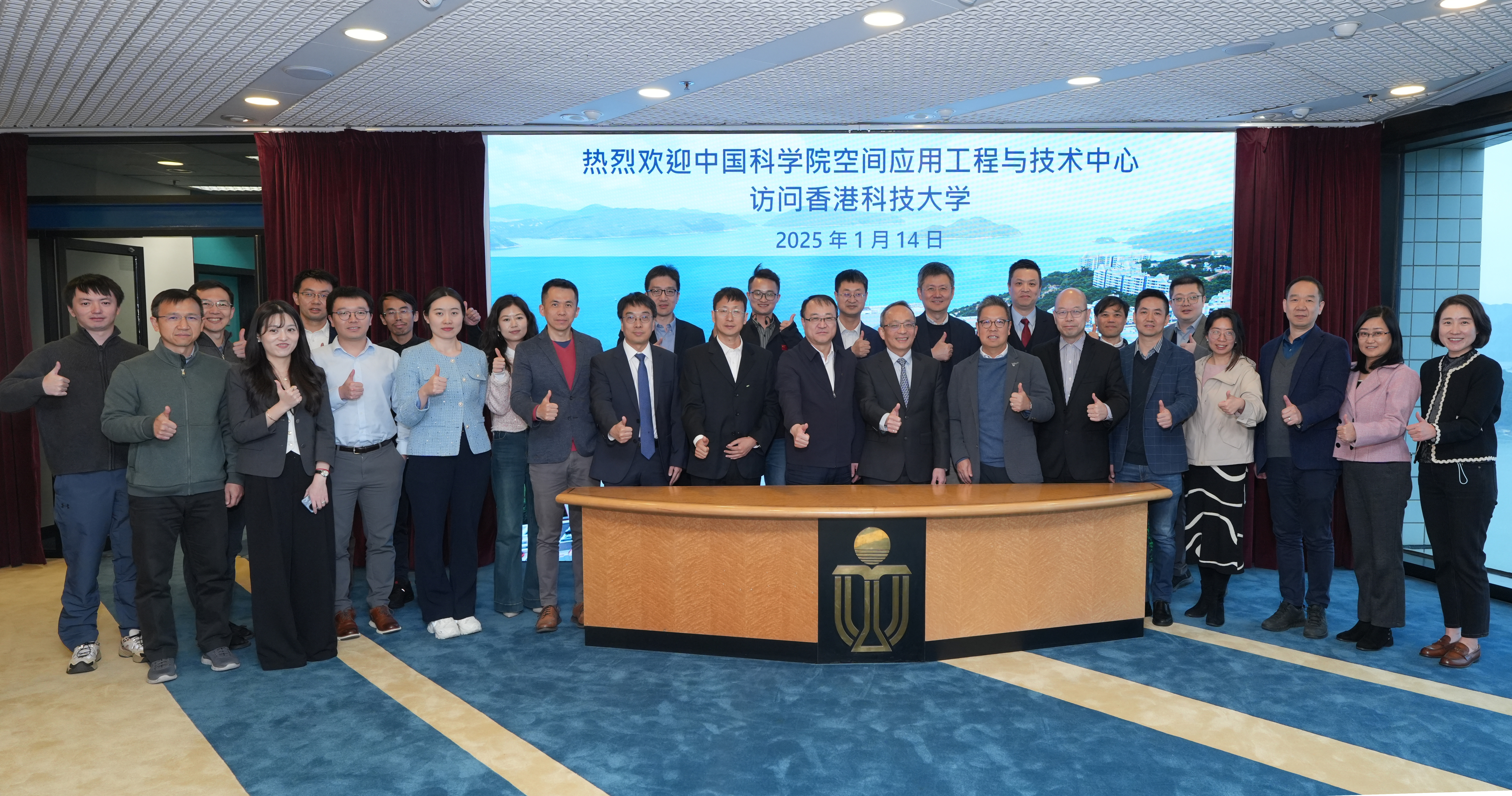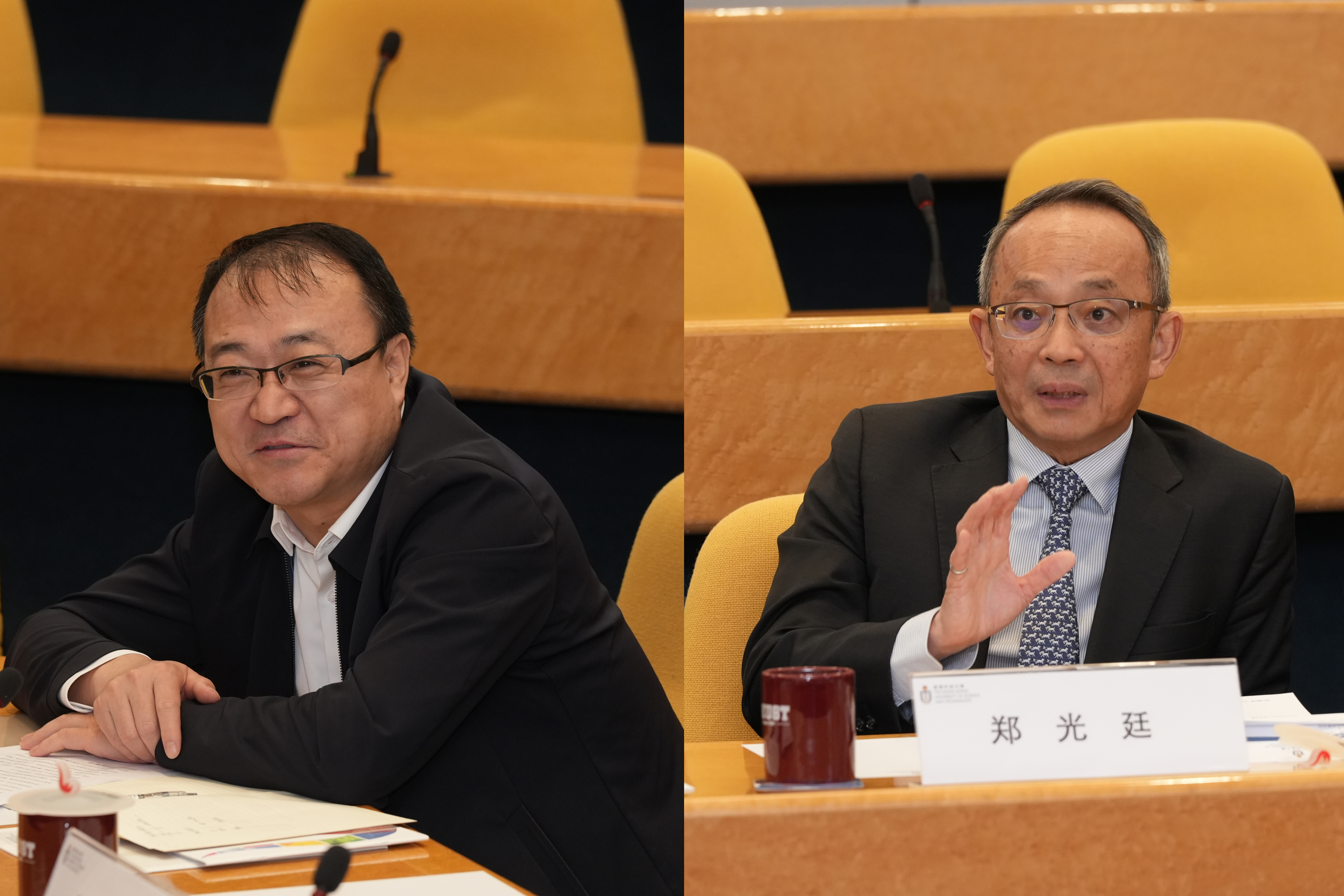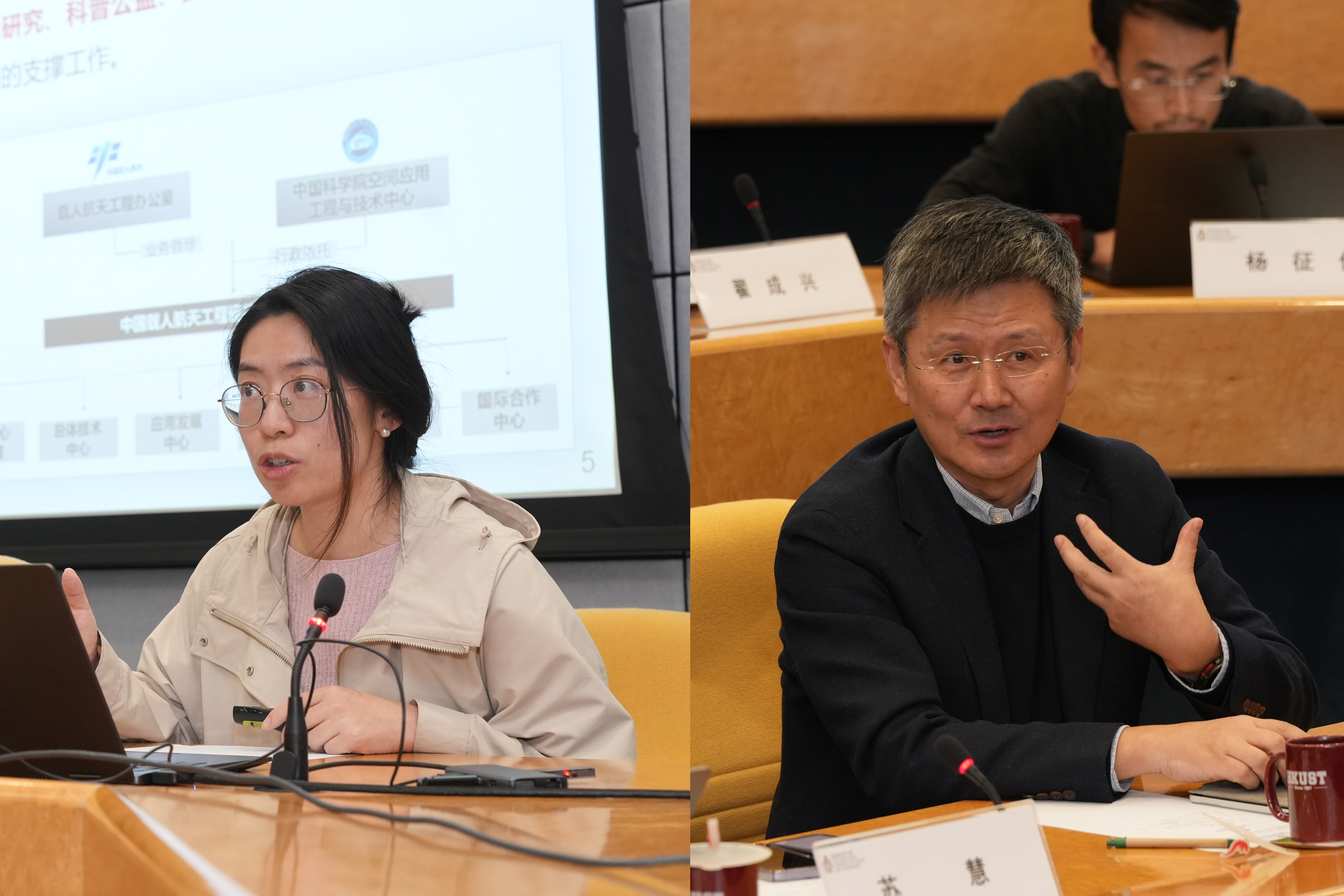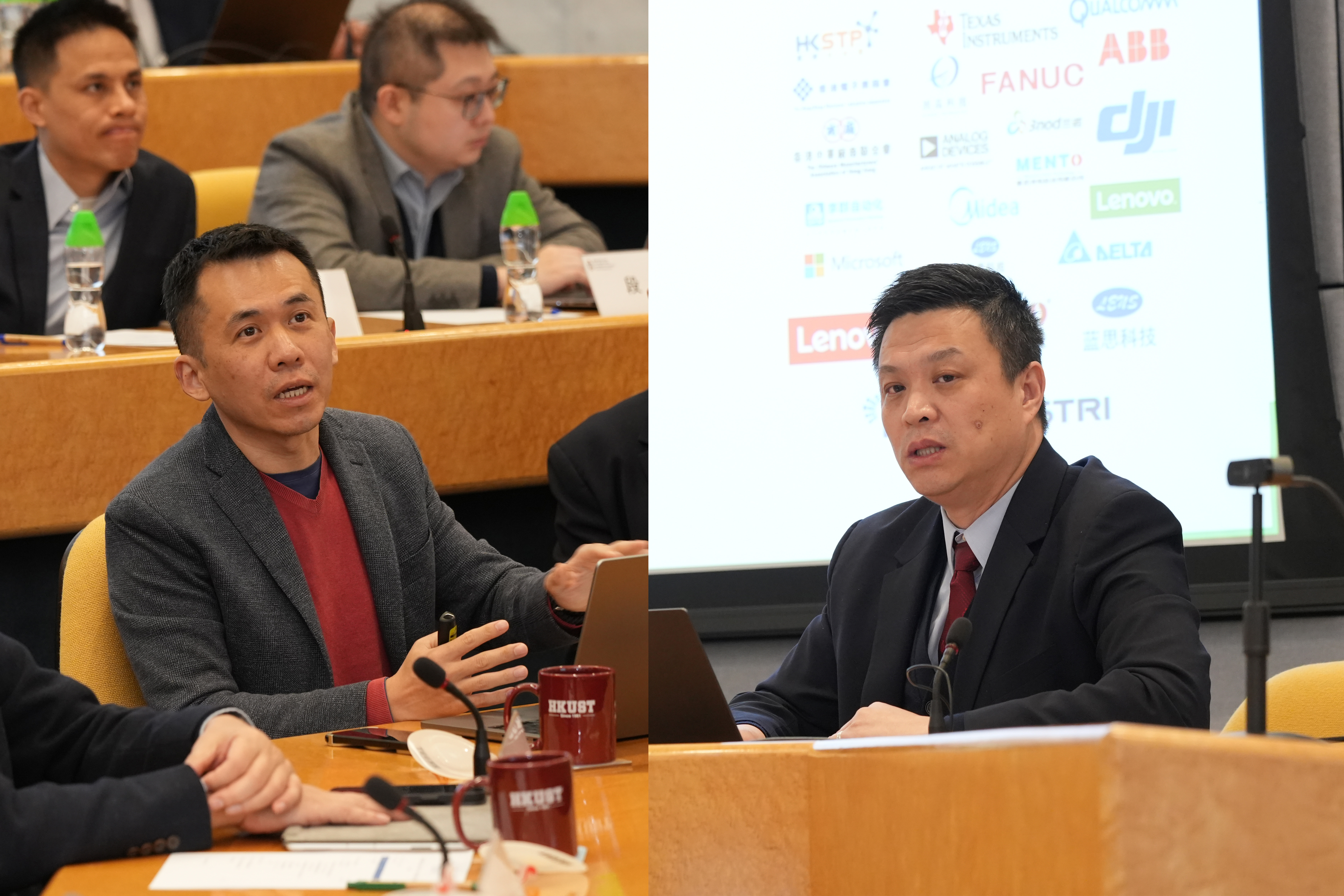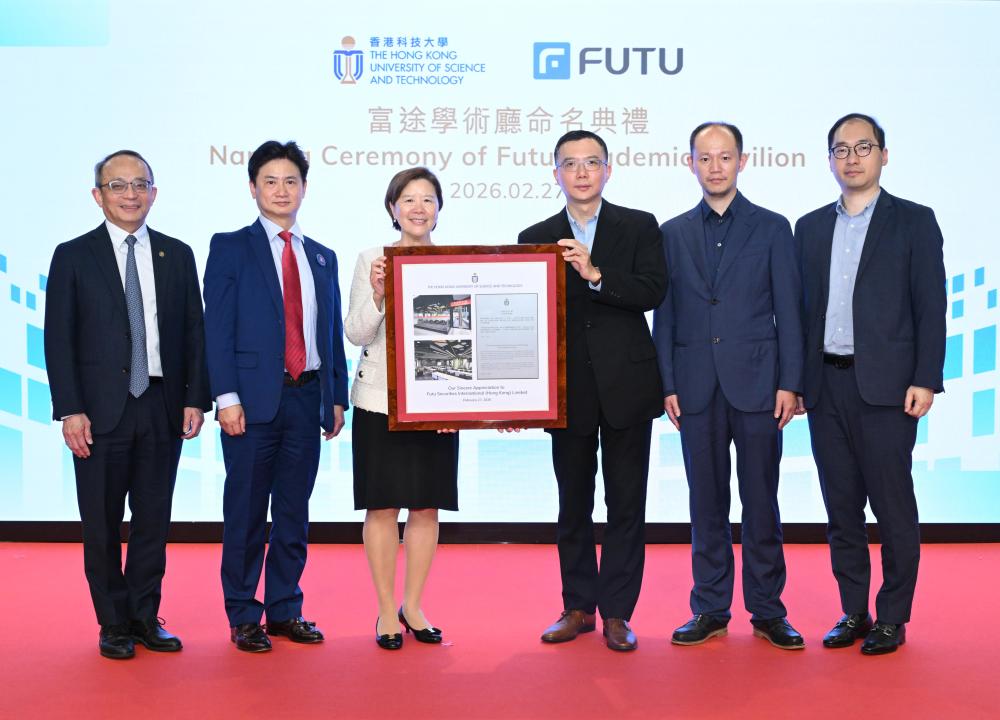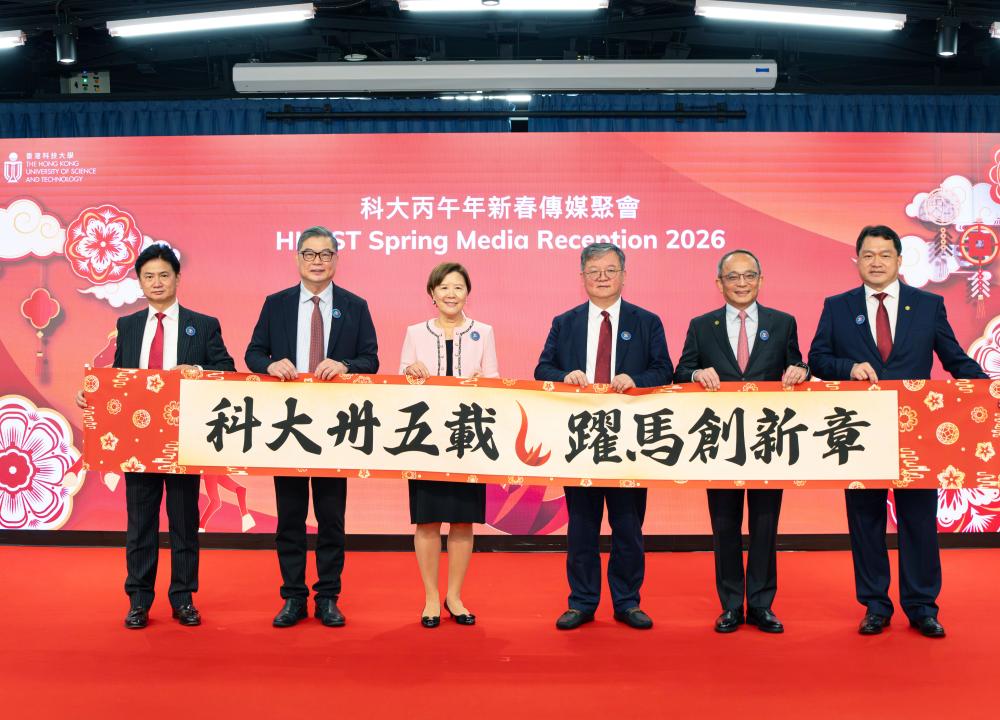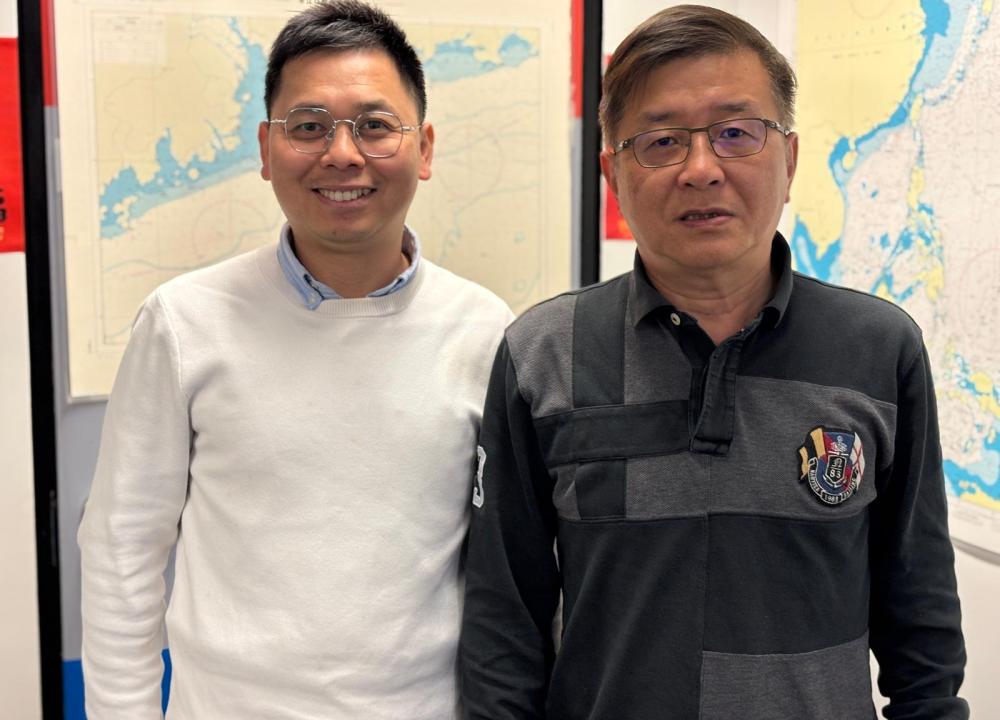HKUST Signs Framework Agreement with CSU.CAS
A delegation from the Technology and Engineering Center for Space Utilization of the Chinese Academy of Sciences (CSU.CAS), responsible for China's manned space research and application projects, visited the Hong Kong University of Science and Technology (HKUST) today. During the visit, they met with the university's senior management and faculty, culminating in the signing of a framework agreement designed to enhance collaboration in five critical areas: establishing a joint laboratory, promoting research partnerships, co-sharing research facilities and systems, facilitating talent development, and fostering international cooperation. By combining their respective strengths and resources, the agreement seeks to jointly advance research and technology in aerospace engineering, contributing to the nation's space endeavors.
Under the terms of the agreement, both parties will explore the establishment of a joint laboratory to promote the integration of cutting-edge technologies and innovative practices with the support of the manned space station's large-scale facilities, ultimately striving to become a national key laboratory for developing impactful research programs. Additionally, they will actively collaborate on local, regional, and international research projects. The two parties will jointly organize academic seminars, thematic lectures, and teaching workshops, thereby creating a platform for academic exchange in the field of space science and applications for global experts and scholars. Interactions between faculty and students will also be enhanced through joint talent development programs and visits to nurture professionals in this emerging field.
The agreement was signed by Mr. WANG Ke, Deputy Director of CSU.CAS and Prof. Tim CHENG, Vice-President for Research and Development of HKUST. The delegation also seized the opportunity to gain in-depth insights into various aerospace engineering research projects at HKUST and explore potential avenues for collaboration.
Mr. WANG Qiang, Deputy Director (in charge) of CSU.CAS stated, " We highly value our partnership with HKUST, which is built on a strong foundation in research and innovation across various fields. Its expertise in areas such as space materials, robotics, and artificial intelligence closely aligns with our center’s research goals. The signing of this framework agreement marks a pivotal milestone for our mutual advancement. By establishing a joint laboratory, we will integrate resources to address critical technical challenges in space science and applications. Together, we are poised to leverage our facilities, including the space station for groundbreaking research, creating significant international impact and accelerating the development of aerospace engineering technology in our country.”
Prof. Tim CHENG expressed his sincere gratitude to CSU.CAS for its trust and support. He stated, "Aerospace engineering is one of HKUST's strategic research priorities, and we have been actively promoting its development in Hong Kong. We are particularly honored to deepen our relationship with CSU.CAS to advance our research partnership, talent development, and international cooperation. By harnessing the research capabilities of both parties, we aim to promote interdisciplinary convergence between space science and artificial intelligence, drive innovative research, and build a leading global aerospace technology platform that contributes to the future of global space endeavors with our wisdom and strength.”
In 2023, HKUST successfully launched the first high-resolution optical satellite from Hong Kong's higher education sector, “HKUST-FYBB#1”, at the Jiuquan Satellite Launch Center. That same year, the University also welcomed nine representatives from the China Manned Space delegation to engage in lively discussions with faculty and students. Additionally, a research team led by Prof. SU Hui, Global STEM Professor and Chair Professor of the Department of Civil and Environmental Engineering, received approval from CSU.CAS last year to lead the "High-Resolution Global Greenhouse Gas Observatory" project, which is expected to be applied in China's Tiangong Space Station in the future.
About The Hong Kong University of Science and Technology
The Hong Kong University of Science and Technology (HKUST) (https://hkust.edu.hk/) is a world-class university committed to innovative education, research excellence, and impactful knowledge transfer. Our holistic and interdisciplinary pedagogy approach is recognized globally. HKUST placed 3rd in the Times Higher Education’s Young University Rankings 2024, 19th Worldwide and No.1 in Hong Kong in Times Higher Education’s impact Rankings. Twelve of HKUST’s subjects were ranked among the world’s top 50 in the QS World University Rankings by Subject 2024. Of these, "Data Science and Artificial Intelligence" ranked first in Hong Kong and 10th in the world. Our graduates are highly competitive, consistently placing among the world’s top 30 most sought-after employees. Our research and entrepreneurship endeavors are also innovative and impactful. Over 80% of our work was rated “Internationally excellent” or “world leading” in the latest Research Assessment Exercise 2020 of Hong Kong’s University Grants Committee. As of November 2024, HKUST members have founded 1,800 active start-ups, including 10 Unicorns and 16 exits (IPO or M&A).
About Technology and Engineering Center for Space Utilization, Chinese Academy of Sciences
Technology and Engineering Center for Space Utilization, Chinese Academy of Sciences (CSU.CAS) is on behalf of the Chinese Academy of Sciences. It has been leading the space utilization system of China Manned Space Program(CMSP) and taking the responsibility of the management and coordination of the system, as well as the system design, integration, testing, reliability assurance, in-orbit technical support, in-orbit payload control, data acquisition and service, etc. It’s also the Executive Center of China Manned Space Agency, providing scientific, technical and managerial support for CMSP. With 20 years of unremitting endeavor, tens of scientific research projects have been successfully implemented, by utilizing the “SZ” series spacecrafts, “TG” space laboratories and “TZ” series cargo-ships. Meanwhile, the China Space Station(CSS) has finished construction and put into use now. As the "National Space Laboratory", the conditions are flexible and diverse, also has vast experiment resources, could support thousands of scientific research and utilization projects in more than 30 research topics of 4 major disciplines. So, CSU.CSA welcomes countries from around the world to share the fruits of China manned space development.
For media enquiries, please contact:
Gloria Tang
Tel: 2358 6306
Email: gloriatang@ust.hk
Philip Kwong
Tel: 2358 6299
Email: philipkwong@ust.hk









